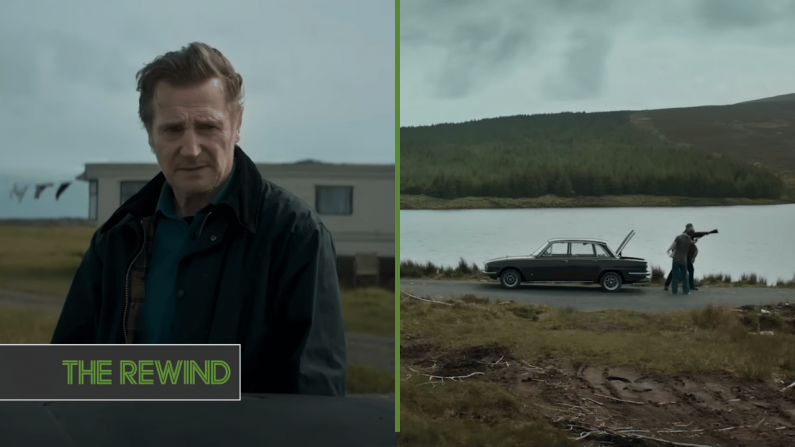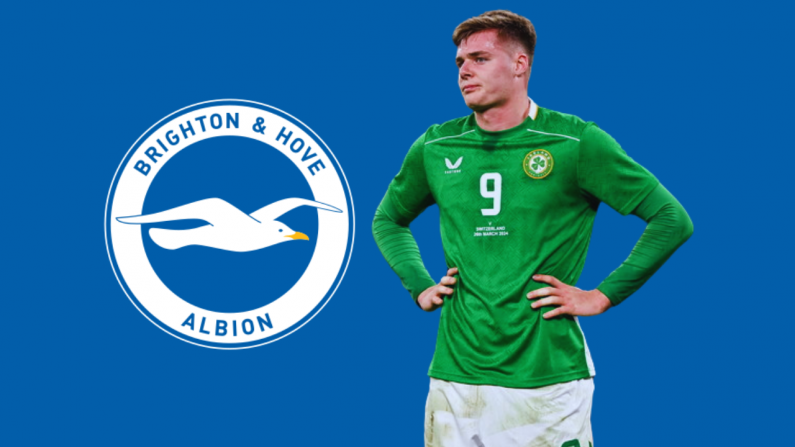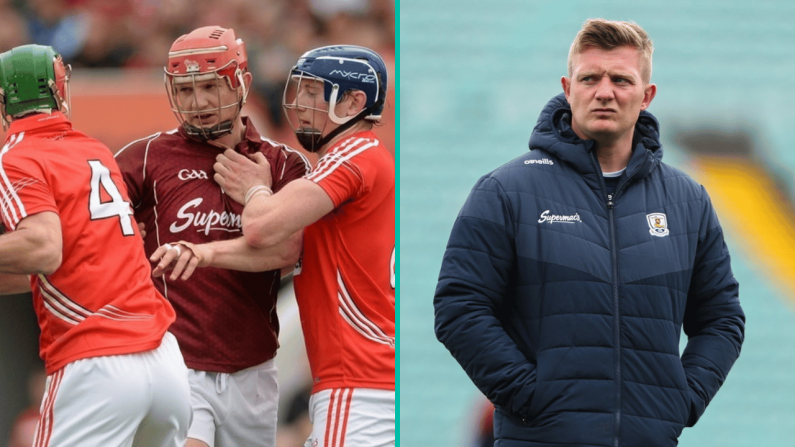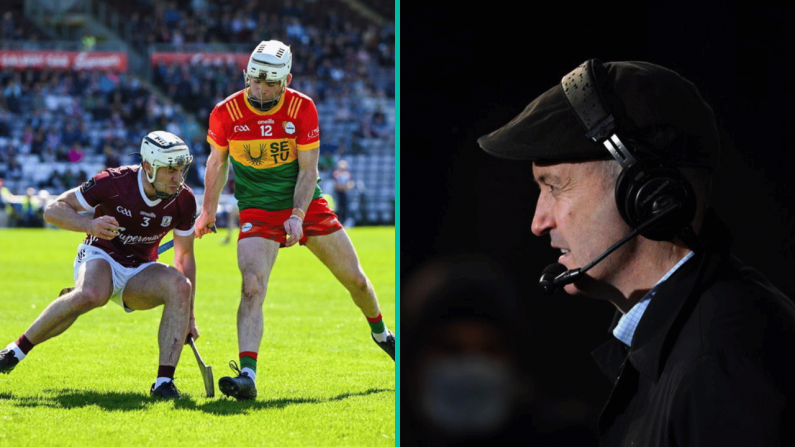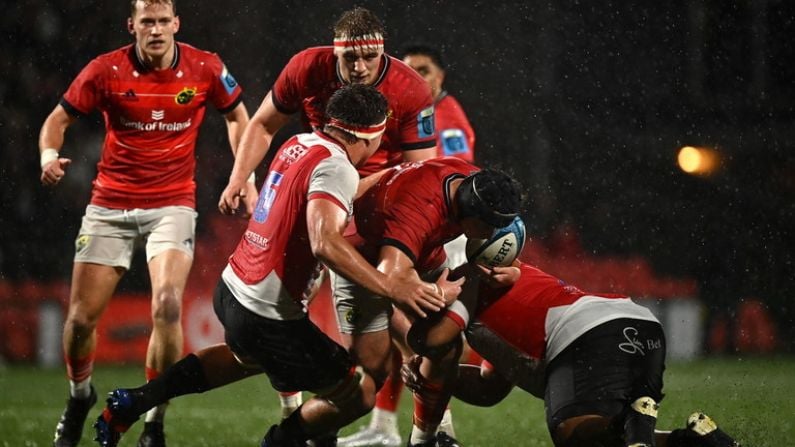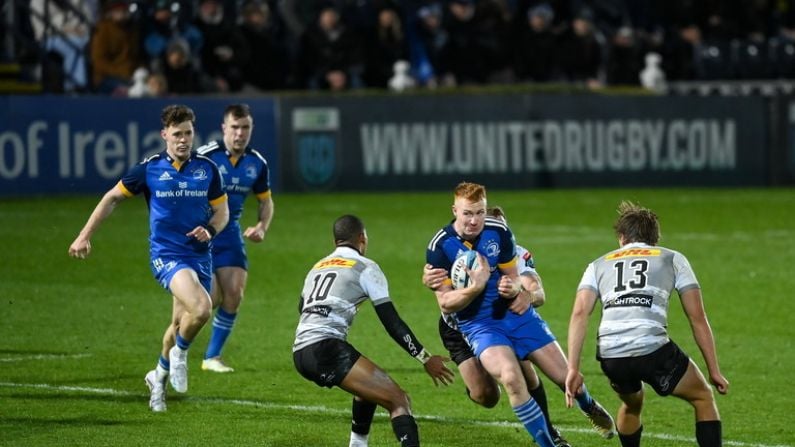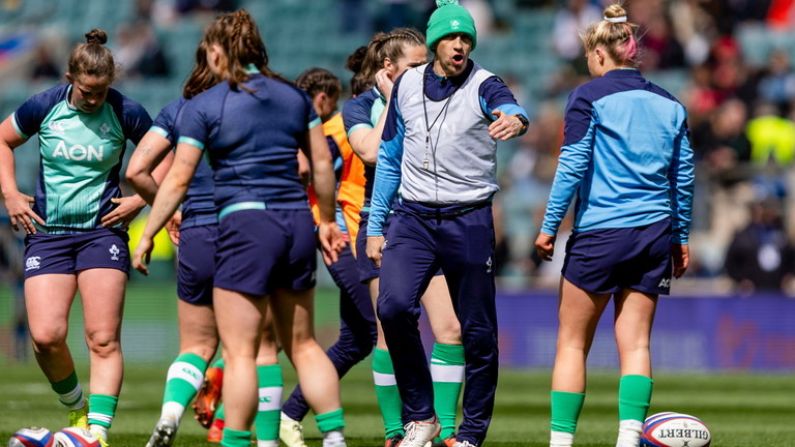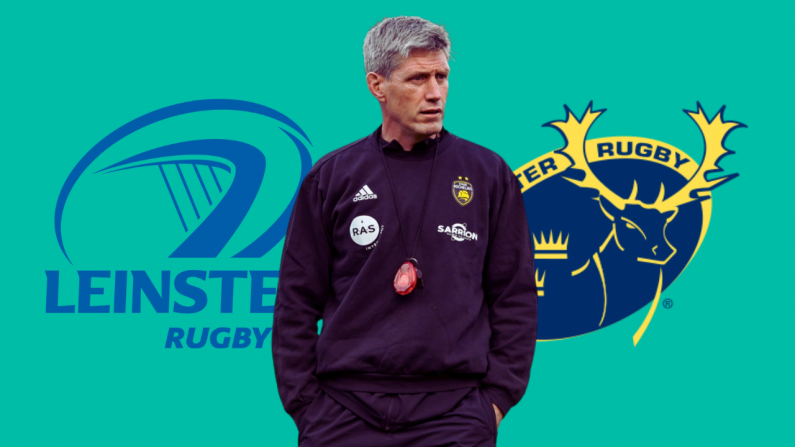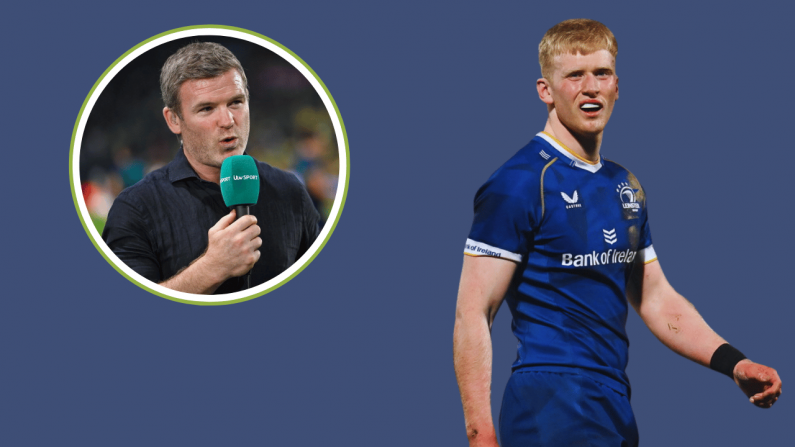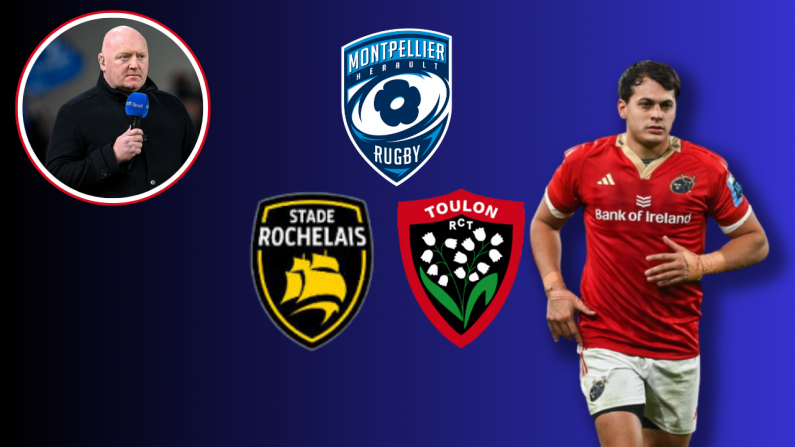As Ireland bid to garnish an extraordinary year with a three-test series success in Australia, we look back at four previous tours Down Under.
1967
In the autumn of 1967, a collection of Australian Rules footballer swaggered into Dublin, and challenged All-Ireland champions Meath to a game of Gaelic football. They won. As Paddy Downey of The Irish Times recalls:
We scoffed – with the requisite measure of politeness – when Mr Harry Beitzel, manager of the Aussie footballers, sent word last week that he felt his boys could beat Meath at Gaelic football. We ate mountains of humble pie at Croke Park last week when those bronzed Aussie giants in their sleeveless jerseys, looking like a line up for a Mr Universe contest, vindicated Mr Beitzel’s prediction.
This victory came either side of Australian victories against Dublin and Mayo - the latter game having the curious honour of being the first Gaelic football game played on a Saturday at Croke Park.
These Australian victories went some way to atoning for matters occurring months earlier, when Ireland beat the Aussies on their own patch, if not at their own game.
Ireland's rugby tour Down Under in May, 1967 yielded a first win for a Five Nations side in Australia, and only the second-ever victory in the Southern Hemisphere. (France beat Ireland to the punch in South Africa in 1964). Ireland had won each of their previous two meetings with the Wallabies, although both came in Dublin: a 9-6 win in 1958 was followed by a 15-8 victory at Landsdowne Road in January 1967.
Ireland's tour schedule was gruelling: the Test against Australia was the middle game in a run of five games in a fortnight. The build-up to the Test match at the Sydney Cricket Ground was inauspicious, with the squad crashing to a 21-9 defeat to New South Wales seven days before the Australian game. While NSW had an impressive collection of scalps that included a draw with the British and Irish Lions and a win over New Zealand, the Irish Press partly attributed the Irish defeat to " an intensive week of training and social functions".
Three days later, Ireland were boosted by a 31-11 victory over a New South Wales Country Districts XV for which the debuting prop Phil O'Callaghan earned great praise. O'Callaghan would be remembered as owning one of Irish rugby's driest wits. When a referee once pulled him up for illegal scrummaging by telling him "You're boring", O'Callaghan rejoined that "You're not so entertaining yourself, ref".
Ulster No.8 Ken Goodall made his debut in the white heat of the Test match and later learned that his staunchly unionist grandmother draped a cloth over the television during the national anthem. Once the anthem came to an end, the cloth was whipped off.
Ireland were rank outsiders against the Wallabies yet pulled off a shock 11-5 victory, with the Aussies lucky not to get nil. Ken Catchpole was awarded a try, in spite of subsequent photo evidence showing that Ireland's Niall Brophy touched the ball down ahead of him.
Mike Gibson scored the only Irish try, with Goodall reminiscing in Tom English's No Borders that "I was a bit full of myself [celebrating] as we were running back to the halfway line. Noel Murphy, the captain, said to me, 'Settle yourself down, Goodall, you're not a schoolboy anymore'.
Instead, that title was slung at the Australian team by a furious Sydney Sun. "Australia frittered away chance after chance in a display hardly worthy of a team of schoolboys", bloviated journalist Eddie Kaan. "Australia's shocking display, and the incessant kick, kick, kick, has put the game back years. The international law of allowing of permitting kicking out on the full without penalty is a killer of spectator and cannot be stomached by the Australian rugby spectator. Australia were outpaced and Ireland's margin of victory was greater than the final scores indicated".
Periodisation' had yet to wade into rugby lexicon, but Ireland undoubtedly targeted this game. Tom Kiernan admitted afterward that "this was the one we wanted". Kiernan was the game's outstanding player, kicking a conversion and a drop goal to reach a century of international points along with equalling a world record 33 appearances at international level.
There was some controversy after the game: radio reports blamed the Irish players for a disturbance at the Chevron Hilton after the game. The Irish Independent police were called to " to quell a riot at the function attended by the Irish team", but said that reports blaming the disturbances on the Irish squad amounted to "inaccurate publicity" that "upset the Irish party considerably particularly as the players proved to be fine ambassadors".
Upon their return home, the Irish squad were feted as doing more for the game in the space of 25 days "than any record book could show". The tour was also heralded as a success for the sport in general. Australia pocketed a £7,000 profit from the Irish tour, thus paving a way for future visits by England, Scotland, and Wales.
1979
Before whiffs of cordite entered the Irish rugby vernacular, we had the sniffs of Ward-ites.
"The decision to drop Ward will go down as the most inexplicable ever taken by a selection committee", cavilled the Examiner. "Massive Blunder by Selectors" shouted the Irish Press. The Irish Independent labelled it "the astonishing price of stardom"; the Herald plumped for "an incomprehensible gamble".
A nation's proclivity for being cleaved in two over conflicting Irish personalities thousands of miles away got a pre-Saipan road test in Australia in 1979. Tony Ward, the dazzling, laurel-laden poster-boy of Irish rugby versus Ollie Campbell, the functional and untested reserve.
Ward, then-reigning European Player of the Year and crucial in Munster's iconic victory over New Zealand, was the incumbent Irish out-half and man of the match in three of Ireland's Five Nations games earlier that year. In spite of that run of form, Ward travelled to Australia amid hushed speculation that he was likely to be dropped for Campbell for the first Test.
That transpired, with Campbell selected for his first Irish appearance in three years by the three-man selection committee of coach Noel Murphy, manager Jack Coffey and captain Fergus Slattery.
Ciaran Fitzgerald later speculated that the IRFU didn't take favourably to the narrowing of the media spotlight on Ward, and that idea was manifest in newspaper reports of the time. The Irish Independent said that the feeling among the squad was that "the brilliant Tony Ward has been dropped for one reason only - because of his world superstar status!"
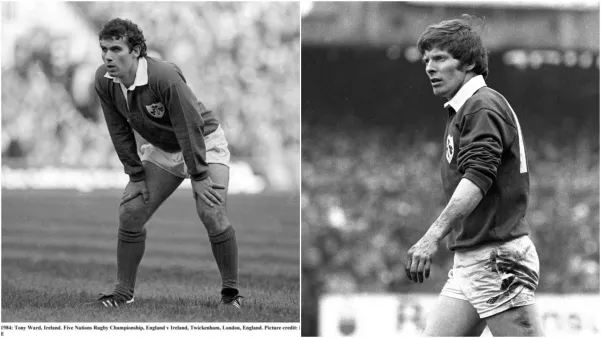
Ward's being dropped did not owe to a loss of form, either: he scored an Irish record of 19 points in the game prior to the first Test. The Indo posited that "the Australians are laughing their heads off", but in reality, they were bewildered.
They refused to believe that Ireland would drop Ward. Australian captain Tony Shaw said that Ireland were "up to something", while the Evening Telegraph reported that "the Australians have become deeply suspicious of the tourists' every action".
Ireland manager Jack Coffey doubled down. "They are a suspicious lot out here. We really are a very simple side. There is nothing tricky about us".
Slattery maintains to this day that Campbell was preferred owing to his pace along with his game management.
The problem with Tony's game was a lack of pace and it wasn't apparent to the intelligentsia in the media. He didn't have the pace to do the things he tried to do. He was a great dancer, small and agile, but there was far more structure to Ollie's game. Wardy had a tendency to crab across the pitch rather than go forward and that put more pressure on the outside. It was only a bombshell to the people who didn't know what they were saying.
In the realm of redemptive selection moments, the Irish team could take exceptional satisfaction from just the first three words of the Herald's report of the first Test.
Whither Wardy now?
Campbell was outstanding in the first Test, kicking two conversions, four penalties and a drop goal to steer Ireland to a 27-12 victory. There had been speculation that Ward might regain his place for the second Test in Sydney a fortnight later, but Campbell kept his place and was Ireland's only scorer in a 9-3 win to cap an incredible tour.
Ward was publically magnanimous about the whole farrago, praising Campbell's performances whenever a microphone was thrust his way. Upon landing at Dublin airport, Campbell and Ward posed together for some slightly-forced photographs, with Ward then handing his girlfriend a stuffed koala bear as he politely refused to engage with journalists.
Ward has since said his confidence never recovered from the shattering blow of being dropped in Australia, claiming to be the victim of political scheming.
Ireland haven't beaten Australia at home since.
1994
"The last of the great drinking tours", as Victor Costello labelled it in No Borders. Jeremy Davidson roomed with David Corkery, and when they arrived at their first hotel - the Esplande Hotel in Fremantle - they dumped their bags in their room and dawdled for five minutes.
When they went back downstairs the lobby was deserted, as were the streets around the hotel. They soon found the entire touring party guzzling pints in a pub.
This tour juts out in history as the rubicon between amateurism and professionalism. Keith Wood, for example, made his debut on the tour but had some trouble getting the holidays to do so from Ulster Bank. With players using their holidays for these tours, it was never expected that it would be all temperance and training. "A piss-fest" was Mick Galwey's pithy summation to Brendan Fanning in From There to Here.
On the field, Ireland were pulverised by the reigning world champions and their snarling, midweek retinue.
Following a facile opening win against Western Australia, Ireland lost all but one of their remaining games. The nadir arguably came days before the first Test defeat in Brisbane as Ireland were ambushed by an Australian XV in Mount Isa, a place Costello described to Tom English as a "deep, dark shithole".
The Australian XV turned out to be Australia A, and hammered Ireland 57-9. Ken O'Connell, who came to the game off a plane having been flown out as a replacement. Willie Ofahenguae, a nineteen-stone back-row, was angling for a spot on the Wallabies team and spent the game running through O'Connell. As Conor O'Shea recalled to English: "Ken was behind the posts at one stage and said, 'If I had a gun, I'd shoot myself'.
As for the Test matches, Ireland were comfortably beaten: 33-13 and 32-18 respectively. The Irish Press damned Ireland with caveated praise for their performance in the second Test before calling on the IRFU to get their house in order as Ireland continued to lag behind the rest of the world.
"The Irish rugby situation is always desperate, but never hopeless, or words to that effect? Now is the time to leave that hoary old clap-trap to the neanderthals propping up every rugby-club bar in the country - at least, in Dublin.
1999
The real horrors of 1999 were relegated to Lens later that year, and even though Ireland once again lost both Tests in Australia, the tour would intermittently fizz with a bit of optimism. This was primarily down to the emergence of Brian O'Driscoll, who made his full debut in the first Test in Brisbane. It was a four-game tour, shortened in anticipation of the World Cup. Ireland began with a win against an NSW Country XV, before falling to a heavy defeat to the Waratahs.
Warren Gatland spoke glumly of Ireland being taught a lesson in that game, saying that the pace of Super 12 rugby was something that those playing in the European Cup and the Five Nations had not experienced before. Even by then, Ireland were leaning heavily on O'Driscoll, with the Sunday Independent lamenting that Ireland's best hope of scoring drifted down the tunnel with O'Driscoll at half-time.
It was remarkable how quickly O'Driscoll became the sole player synonymous with hope, with the Indo saying that the success of the tour hinged on whether O'Driscoll could recover from a knee injury in time for the first Test.
His doing so gave Ireland a bit of a pick-up, but such positive feeling proved ephemeral and was entirely absent by the time Warren Gatland faced the Irish press after a 42-10 walloping. So stung was he by the criticism, Gatland refused to speak to the Irish media before the second Test. The Herald, er, teased the second Test by urging "sports fans unafraid of massacres" to tune into the game on Sky Sports.
The tour, however, ended in one of the great Moral Victories. The Sunday Independent shouted "Pride Restored" following a six-point defeat. Within a few months, it would be frittered away in France.



